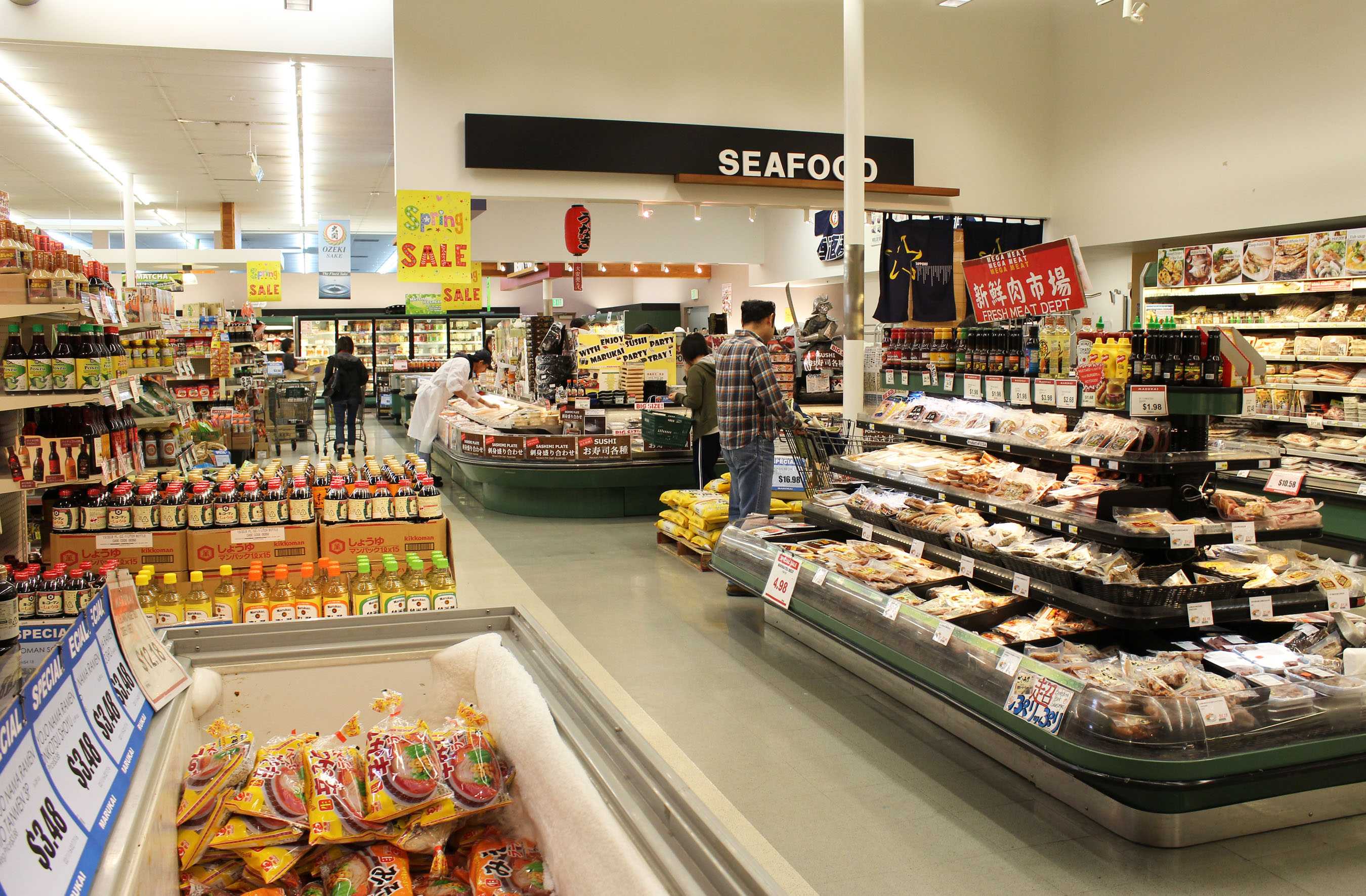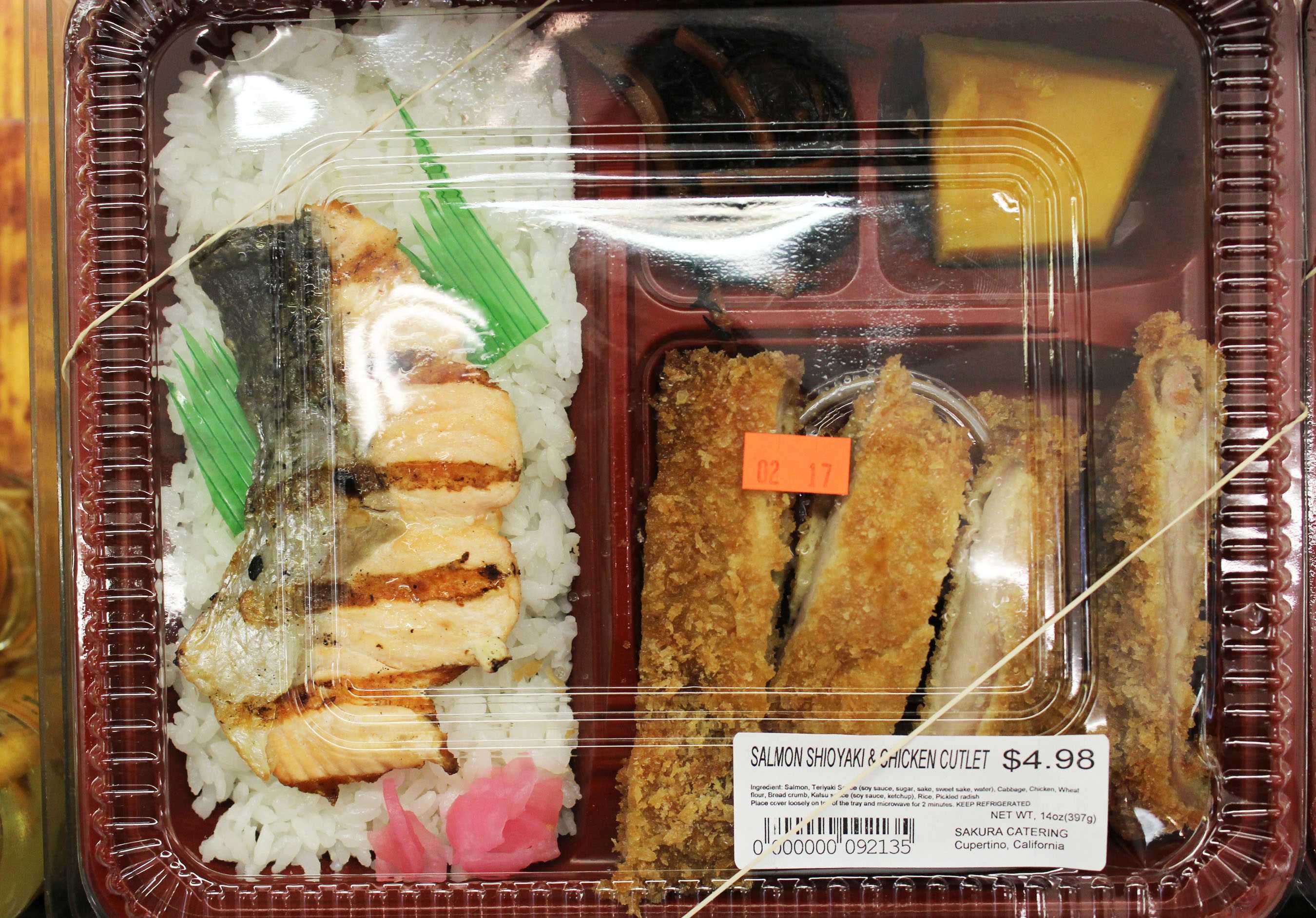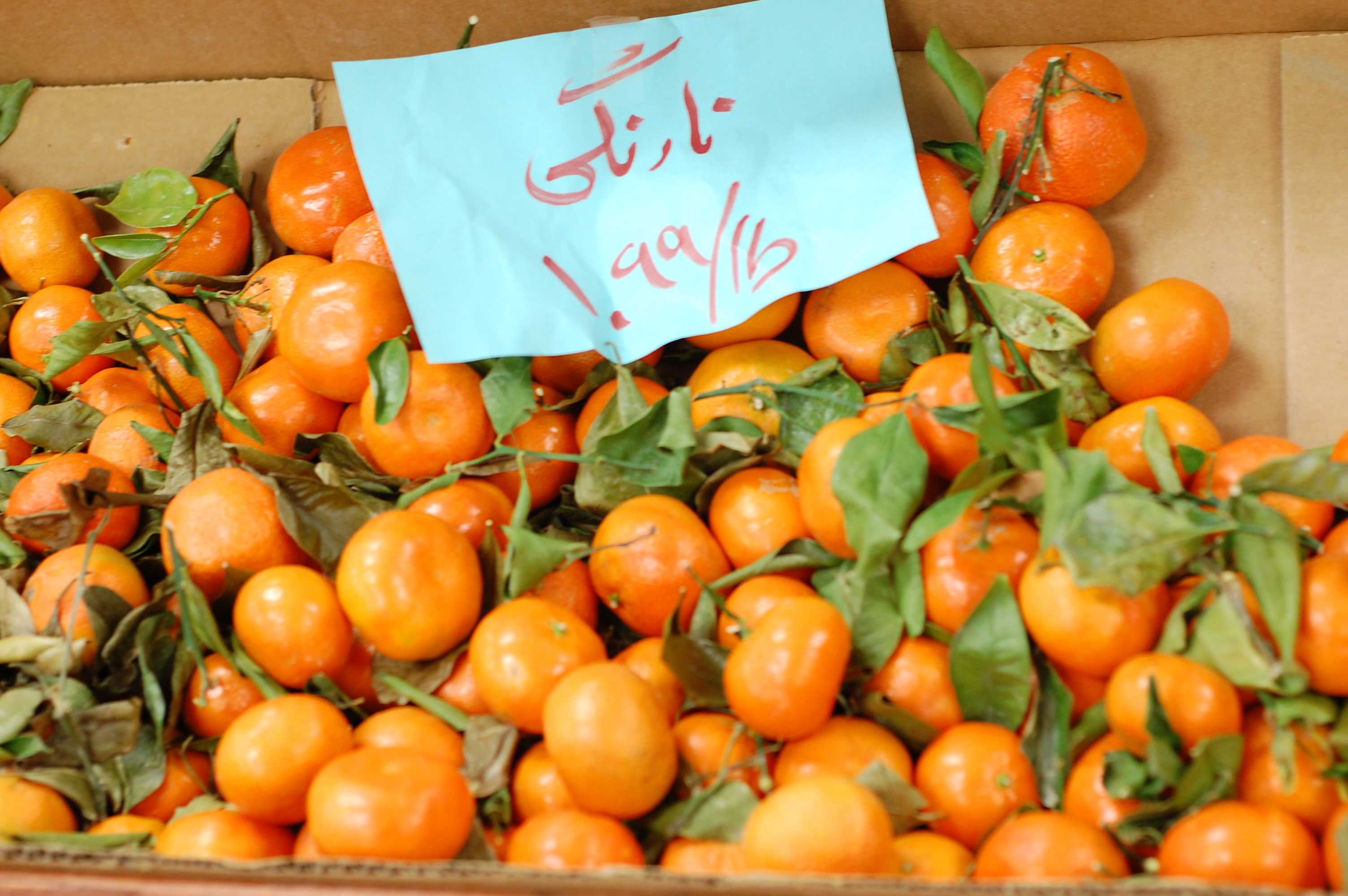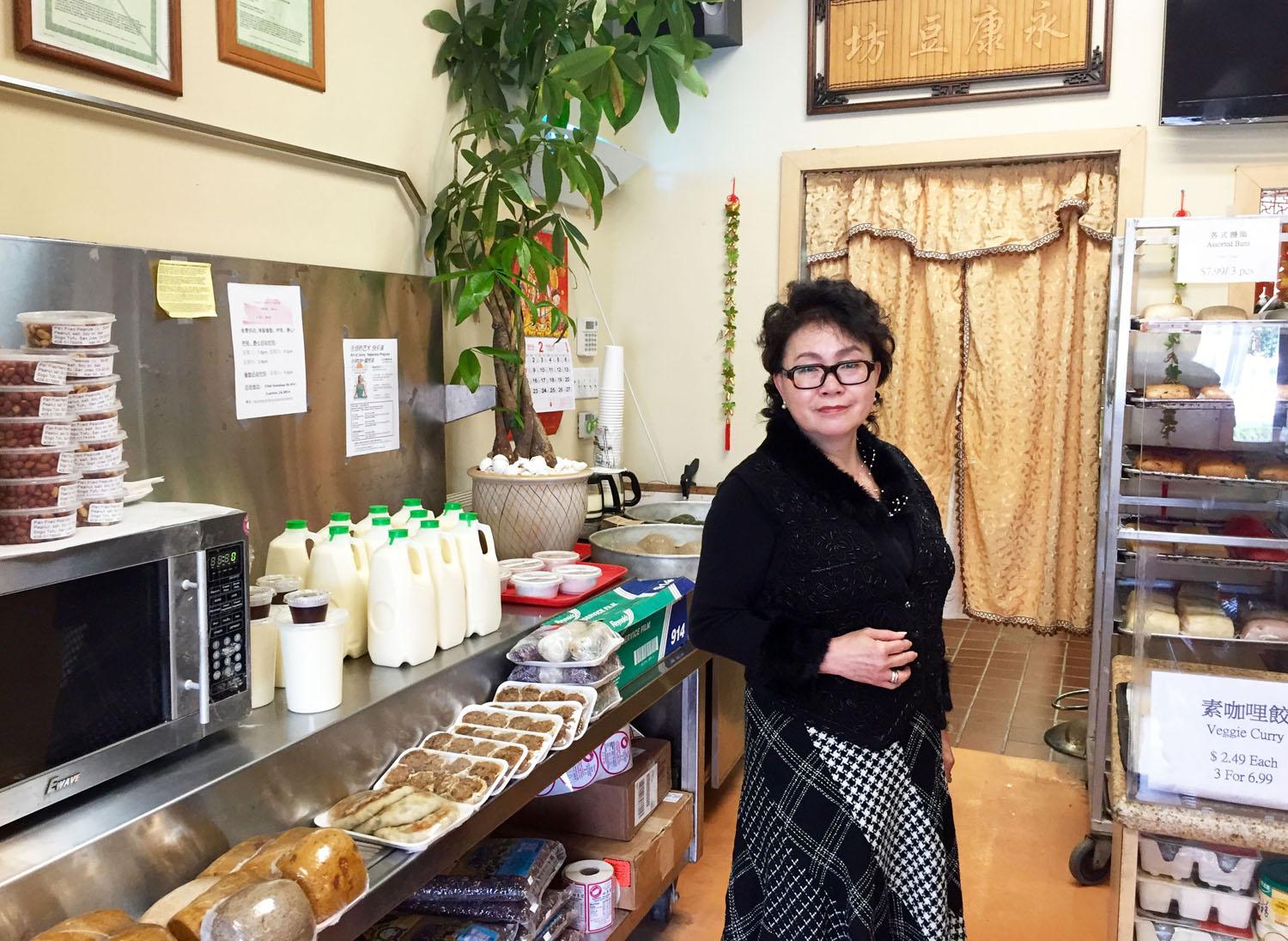 Story and photos by Renee Pu and Hannan Waliullah
Story and photos by Renee Pu and Hannan Waliullah
Nothing cheers up a traveler more than a warm plate of homeland dishes. For immigrants, ethnic grocery stores carry familiar foods and ingredients, incorporating a soothing sense of belonging.
Marukai Market

As the stores greet customers who pursue a taste of hometown, they welcome newcomers from all cultures. Those people step in with curiosity, trying to find their places in the stores of other cultures, while the stores try to find their place in the city of Cupertino.
Confused customers step into Marukai Market with recipes in their hands, determined to produce foreign dishes in their own style. Surrounded by unfamiliar Japanese characters, they are directed to the right places by Marukai staff.
Many customers are introduced to Japanese cuisine by local restaurants.
According to Chiye, a Marukai employee, this results in their preferences being limited by the menus. Many newer customers are only interested in popular dishes in foreign market, like miso soup and teriyaki chicken.
In contrast, Japanese shoppers purchase a larger variety of ingredients to make different dishes. They also use ingredients differently. While other customers buy miso only to make miso soup, Japanese customers use the material to cook other dishes as well.
Marukai Market has sacrificed some Japanese grocery store traditions to function.
Almost all the grocery stores in Japan make bentos, Japanese lunch boxes, in the back kitchens and sell them in the store.
“[In Japan], when people go back from work, they can grab the bentos on their way for dinner,” said Chiye. “Sometimes the bentos are still warm because they are fresh out of the kitchens.”
However, Marukai Market, a chain grocery store, is not permitted by law to have such a kitchen. So bentos sold in the market are transported from factories elsewhere.
Although Japanese customs are limited by culture differences, Marukai Market in Cupertino gives people with different origins the opportunity to experience Japanese culture.
Rose Market

Saied Mehrensar had a dream. He dreamed of starting his own business. Although 20 years ago the competition was mild and the cost was less, it was not easy with the tedious rules and regulations.
But he knew the rewards, because Mehrensar used to own a restaurant in Iran.
He and his family decided to create this business together. Mehrensar didn’t know the rules and methods to run a market in America. After doing all the steps he finally opened Rose Market.
Unlike Safeway or Trader Joe’s, it was a small grocery store with a tighter sense of community. Ethnic grocery stores like Rose Market make it easier to find ethnic ingredients.
“As long as you have ingredients you can start cooking and making them into the same dishes that grandma cooked,” Mehrensar said.
The store sells Mediterranean and Persian groceries, including spices, canned foods, sweets and exotic vegetables. Despite this, not all of his customers are Middle Eastern and Persian.
They now own three stores: in Saratoga, Cupertino and Mountain View. The three brothers manage all the stores.
Many of the customers come to the store to experience the cooked food from the back kitchen, which hasn’t been around since the store’s inception. It was added later.
Despite American and Persian cuisine not having much in common, Mehrensar doesn’t feel the need to change Rose Market’s food. Americans, Mehrensar said, especially love food from different cultures. They are curious about different types of foods and ingredients not found in American cuisine, and Mehrensar wanted authentic food.
“You never forget your origin. You shouldn’t forget your origin,” Mehrensar said. “When you immigrate to another country, you keep the good things that came with you and accept good things of the country that you immigrate to.”
Sogo Tofu

Note: Ai Hua is the name the owner of Sogo Tofu chooses to go by for her staff and customers; Ai represents “love” in Chinese, and Hua refers to “Chinese culture” regardless of nationality.
Twenty years ago, there was a huge Chinese organic supermarket with a full system of departments. The original owner had the hope of embracing a healthy lifestyle through traditional Chinese cuisine.
Eventually, business dwindled. Chinese immigrants were not familiar with organic food choices and Americans were hesitant to purchase food from an unfamiliar culture.
The market was then divided into separate small businesses by different departments. Today, all these shops have closed down except for Sogo Tofu, the vegetarian food department.
An employee of the original supermarket, Ai Hua, took charge of Sogo Tofu.
Trying to preserve the traditional Chinese way of making tofu, Ai Hua and the other workers clock in everyday at 5 a.m. to make tofu from fresh beans, step by step.
“There are machines elsewhere that make 2000 pieces of tofu in minutes, whereas by hand we can only make 20 pieces,” Ai Hua said. “But we still only make and sell handmade tofu and spend time to grind beans and chill the mixture in a traditional way, because we know the taste is different, even if not everyone realizes it.”
Ai Hua moved from Taiwan to Cupertino, and has noticed that as the fast-developing society changes, it loses some irreplaceable values on the way.
There used to be a young man who helped Sogo Tofu sell tofu in the market. However, the emergence of factory-produced tofu led him to join the majority who chose to earn quicker money from machines.
Ai Hua knows that it is unlikely for Sogo tofu to continue with another owner after she retires. She feels that the younger generation of immigrants are further away from cultural traditions, especially when people in the Bay Area are more academically-focused. Even her children, who grew up in America when Ai Hua is in charge of Sogo Tofu, barely know anything about tofu making and arenít interested helping out the future of the grocery store.
“[The younger generation] doesnít understand the [traditional tofu-making], so they wonít be willing or be able to do it,î Ai Hua said. ìContinuing this business requires heart and passion for the culture.”
In a few years, there may not be a place in Cupertino or the Bay Area where people can buy hand-made tofu. And younger people may never know what tofu tasted like for their parents and their grandparents.







